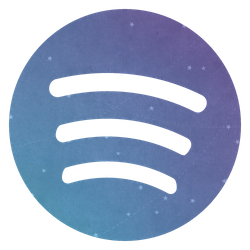episode 48
Your Clients Hire You for RESULTS
Today Sam & Karyn discuss what’s possible when you center the results you can offer your clients and the benefit of focusing on the skills you have rather than the skills you don’t.
Episode 48: Your Clients Hire You for RESULTS
Show Notes:





Episode Transcript:
Karyn Paige, Sam Munoz
Sam Munoz 00:00
At the root of everything, a reason that we might go into a relationship with a prospect and worry. And doubt ourselves is because we are thinking, Am I good enough? Right? Are my skills good enough? Do I know enough tools and platforms? Did I learn how to code did I go to school for this all these things, and we center that fear instead of centering the fact that our clients are hiring us for results. Welcome to Making website magic where we empower women to step boldly into their web design, businesses follow their intuition and claim the success they’re worthy of. I’m Sam Munoz.
Karyn Paige 00:40
And I’m Karen Page, where the Tech Wizards behind Sam, Windows consulting and the making website Magic School of Business. Were two women here to talk about what it actually takes to run a web design business that’s aligned with your vision.
Sam Munoz 00:52
Spoiler alert, it probably isn’t what you think it is ready to hear about everything from refining your business vision, networking with intention and creating a magical client experience. Let’s do it. Hello, Karen.
01:10
Hey, Sam, how’s it going?
Sam Munoz 01:12
It’s going well, over here in a somewhat sunny Michigan. I’m surprised it’s supposed to be 80 degrees this weekend. And I’m like, hallelujah, so much spring this. It snowed last week. So yeah, I’m not like a big weather person. But when it starts getting Sunny, I get excited, apparently.
Karyn Paige 01:31
Yeah, I mean, this is very indicative of like, wherever your geolocation is, or wherever you live, the weather can have a direct influence on your mood. And so if you know we both live in like the northern hemisphere, kind of northern most parts of the hemisphere, where warm weather and sun, it’s the exception, not the rule. So
Sam Munoz 01:55
gotta get into it. Yeah. And you know what, because of that, I’m feeling like kind of a burst of energy, nothing crazy. But it’s, I think, good energy to come into this kind of episode with because what we want to talk about is that your clients hire you for results. And we might shift some mindsets here. I think that that’s kind of the goal is to talk about why we might feel otherwise, why we might feel that clients are hiring us for other reasons, and kind of where this is coming from and have like an open conversation about that. And then kind of end the podcast by letting you know and reminding you what your clients are actually paying you for. So that when we go into the next discovery call, we can center the fact that they’re hiring us for results instead of other things that we might freak out about, and will prevent us from making the sale.
Karyn Paige 02:47
Yeah, I’m just raring to go. So let’s dive right on into this. We’re talking about this because it touches on a few different points, right? There’s some mindset stuff in there. There’s some stuff about sales, there’s some stuff about our experience as web designers and developers, right. So this can resonate with you in a few different ways,
Sam Munoz 03:09
at the root of everything, a reason that we might go into a relationship with a prospect and worry. And doubt ourselves is because we are thinking, Am I good enough? Right? Are my skills good enough? Do I know enough tools and platforms? Did I learn how to code did I go to school for this all these things. And we center that fear instead of centering the fact that our clients are hiring us for results. So I mean, we see this in the mentorship, I’ve seen this in myself. I’ve seen this in conversations I’ve had with other web designers and developers and other people in this space is freaking out about like the tools, for example. That’s like one tangible thing that I can think of is, well, I don’t do WordPress. And people are hiring people for WordPress, or I don’t know how to code. I think that’s probably the biggest one is like I built a website, but I didn’t code it. So therefore, I need to charge less be nobody wants it, you know, see other reason that I’m not going to get hired for this work because I don’t know how to code.
Karyn Paige 04:09
And that just makes me think of the simple like mindset shift of Okay, right now what I’m hearing is you’re centering all of the things that you don’t have, or that you don’t do. And let’s center what’s working, what you can do what’s going well, so if I hear I built this website, but I didn’t code so it’s not good enough. I’m like, you built a website, girl, because you you made that happen. Wow, you found a way to do it that didn’t require code.
Sam Munoz 04:37
Ooh, that’s an interesting way to put it to it’s like you were innovative. That’s something that I might be jumping ahead but that’s okay. That’s the beauty of the podcast is we can jump all over but whatever was something that I’ve kind of learned in five years of selling websites and solutions and things is when I’m talking to clients and they’re you know, kind of explaining like what they’re looking for and stuff. I’m always thinking the back of my head right because I use WordPress and I think to myself, what plug in, can I use for that? What tool already exists that we can integrate into that and I explain it to the clients like, I don’t reinvent the wheel, I’m not going to write that from scratch, we’re going to use tools that already exists that are maintained that are updated that are, you know, they’ve got an entire team behind them, because they aren’t hiring me for writing everything from scratch. They’re hiring me because they want a calendar on their website. And it’s okay that I didn’t write that from scratch. It’s okay that we integrated it, you know what I mean?
Karyn Paige 05:27
Yes, what I’m hearing there is they’re not hiring me to be as complicated and complex as possible. They’re hiring me, because they need something that they can use that simple. And in a way, therefore, I can be simple in creating it,
Sam Munoz 05:48
right? Like, why does it have to be complicated to be valuable? I wonder why we make that connection? Or why does it have to be from scratch, you know, to charge more? And I think that there is there is something there, because there’s kind of this underlying debate, if you will, between, like, real developers and like, web developers, and like, who is writing code and who’s not writing code and the people that are like pulling each other down and saying you don’t know enough and all that, like, those? Aren’t the people you are wanting to collaborate with? Anyway, those are the people that are you know, it’s kind of like that whole, like, whose opinion? Are you really gonna listen to?
Karyn Paige 06:21
Yeah, well, I’ll tell you what, those kinds of ideas of like, if you didn’t go to school for it, it’s not real. If you’re not proficient in these languages, you’re not real, that’s rooted in gatekeeping. Totally. That’s rooted in power hoarding, right. And that’s rooted in like this idea that, you know, if it’s not coming from traditional institutions, right, then it’s totally invalidated.
Sam Munoz 06:49
Which like, that’s not the time we live in. The internet has blown that up, obviously, well, before the internet, we weren’t building websites anyway. But before that, right, like, maybe college, for example, was the thing. But now you can learn so much information online for free or for paying for it or whatever. But like, there are a million ways that you can learn how to build a website, or learn how to brand something or learn how to design a website, or whatever the case may be. And yeah, who is out here deciding that you are or are not a web designer developer based on these, like, very, what’s the word
07:23
patriarchal.
Sam Munoz 07:27
I was going to say, arbitrary certifications. I saw this on Twitter. And it’s a thought that I have all the time. And I think I’ve mentioned it either on podcasts or magic minutes. There is not like a best web designer or a best web developer, right? There is no stratification. There’s not a number one, this isn’t like running. And because of that, we can all be good. And because we can all be good. We can all charge, however much we want to charge because our clients are hiring us for that end result.
Karyn Paige 07:56
Yeah. Again, like let’s center what’s working, and let’s center the abundance, right? Like there’s a million different kinds of clients. Not every client is looking for the same thing, right? So in essence, there’s just more than one way to do the thing. Totally provide the result, right? Going back to the thing of why does it have to be complicated, we really want to like sit with that. Because to me, that’s tied into money, stories of like this idea that if you want to charge a certain amount for building a website, then you have to add everything in but the kitchen sink, or you have to be like an expert who’s done this for X amount of years. And that’s why you can charge what you charge,
Sam Munoz 08:42
or that it has to take a long time. You know, like it’s fast, and it’s there for not as valuable. Hard work.
Karyn Paige 08:50
Yeah. And that’s not always true, right? Making a lot of money does not always mean you have to work really hard or make everything really complex.
Sam Munoz 09:01
Really interesting. Karen, like this is super topical, because WordPress is changing dramatically. Like what I just sent her that for a second. You know, they’re really shifting from using a lot of code and plugins, and all these things to make stuff happen. And now using what’s called like, the block editor, and Gutenberg and all of that stuff with WordPress 6.0. And because of that, there’s a lot of debate around like, is this still development? And what does this look like to actually like visually build a website versus doing everything in code? And like, again, it’s kind of like it can stir up those feelings of like, can I still charge that much? Because this is a little simpler to do? And the answer is yes. Because again, it’s that idea of we’ve talked about this on several episodes, and I can’t remember one particular. I know we talked about it on this episode about your ideal client, because your ideal client you are not your ideal client. Your ideal client is someone that would like to hire someone else to build a website. That person does not care that you’re using block editor. or whatever that you’re using Divi, you’re using Squarespace, you’re just using Duda does not matter, what they want is a website that works. And that’s why we have to listen to their needs and their goals and you know, try to find a solution to their problem instead of centering. It’s kind of, oh, Karen, we’ve talked about this behind the scenes before, but it’s kinda like when we sent her what we don’t know, and our skills and how like, almost, quote, unquote, how not good enough we are, we’re like, totally taking away the attention from the client and what they actually need, because we’re like, we aren’t good enough. And it’s like, a kind of a weird way to think about it, but you’re limiting your opportunities, and you’re not centering the client. Interesting.
Karyn Paige 10:40
Dang, you know, what that makes me think of like, wow, fear is really powerful. Because it got you to like, pull focus from all these amazing things, and really just sit and center in this thing that’s gonna like,
10:53
keep you stuck. Anyway.
Sam Munoz 10:55
I mean, yeah, seriously.
Karyn Paige 10:58
And so maybe that, you know, is like a little bonus from this conversation before we move on is just like, when you get really bogged down in your own fear of like, I’m not good enough, or I don’t know and intended to die. That is an invitation for you to be like, stop, freeze. What do I got? Going for me right now? What’s working? And then proceed? Absolutely. Yeah, absolutely. But speaking of like centering the client, and listening to what they need, and then this kind of is tying into things like sales conversations, what they need, what they need to know. And this again, like kind of overcomplicating this idea of providing them with all of these tools are almost like a flex, right? Like, kind of like, like that whole conversation of like benefits versus features, and what’s going to make the sale for you. And I gotta tell you, it’s probably not what you think it is,
Sam Munoz 11:58
right? And we see this a lot on social media, we see web designers and developers talking about like, all the tech stacks that they’re using to build websites. And that’s great now, but you know, what the client wants to know, how long is this project going to take? What are the requirements for me? What do I need to give you? How much is this going to cost? All of those things are buying decision questions. You know, the fact that you use this like image optimization tool and like do all these like complex tech things? You know that some people might be interested in that maybe your ideal client is a little bit interested in that. But if we’re talking about hiring you and actually getting paid for your service, that is not what’s driving the buying decision, right? Again, kind of thinking about that idea of like, okay, some people do have like, specific requirements, right? So you get on a discovery call, and they’re like, Hey, I actually already have a WordPress, I love WordPress, I’d like to stay here you’re like, got it. I’m a Squarespace person. So I’m gonna refer you out to a friend which by the way, listen to the episode on the beauty of collaborations as web designers, because that’s awesome. And like staying in your lane is totally okay. It’s okay to not know everything. It’s okay to not offer everything. But if they come and they just say like, I just need a website, I would like to sell, you know, these products. Perfect. We can do that on WooCommerce. We can do that on Shopify, we can do that on Squarespace. Right? What we really want to do in those conversations is listen to what they’re actually asking for, listen to the results that they’re looking for, and then provide a solution. We do overcomplicate it, we sit in that fear of like, but I don’t know everything, and like, I make my designs in Canva. But who cares? What is the end product look like? What it How does the end product function? That’s what they’re paying for. It’s kind of making me think of like, this is a very weird example. But like, let’s say I went to go get my hair done for something. Like, I wouldn’t care if they were using a straightener. That was like 20 bucks. Or if they’re using a straightener, that was like $200 All I care is that my hair looks good. When I walk away. I don’t care if they went to cosmetology school. All it cares that my hair looks good when I walk away,
Karyn Paige 14:01
Sam, you know, I love these analogies from other industries. This literally happened to me once when I was getting my hair done. The hairdresser had a blow dryer, and a brush that’s kind of like a cylinder that looked like a microphone, right? And he was styling my hair with it. And I was like, that’s all I need to like, do this at home. And he looked at me and was like, you can try it, but it’s not gonna look as good as me because I’ve got the skills. He was right. I had a blow dryer, and the same brush at home and I could never achieve the same results because he was an expert. This is what he knew. And that is why I paid him because he could do it better than me.
Sam Munoz 14:42
Such a good example, Karen because it’s like, it’s you know, Squarespace is a super, quote unquote simple platform until they market themselves right but it takes an expert to take that platform and create it create something specific for a client that has achievable results right like it takes an expert it use a platform just because you give someone a brush and blow dryer doesn’t mean they can give you an amazing, like, blowout, right? Certainly not me.
Karyn Paige 15:08
Oh, yeah. Yeah. And I love to really like sit into a scenario from a client’s perspective, right? So thinking of this thing about the tools, yes, there may be some like basic fundamental things like I already have a WordPress site. So I need somebody who could help me with that, if they’re coming to you from scratch, they may not care what platform it’s on, and maybe you get to fit them with a platform that best suits their needs, based on who they are. But like, as we’re thinking of, you know, moving the sale forward through like, proposals, or what we’re including and what, like the the list of things that they’re gonna get, I see this a lot on on people’s websites on their services page, right, where they’re like, you know, I’m gonna do this plugin for you. And I’m gonna do that DNS settings. Like, first of all, I
15:54
don’t know what that is, like, this is me wearing my clients voice, right? First of all, I
Karyn Paige 15:57
don’t know what DNS is, I don’t care. Is it going to help me make sales? Is it going to help me get clients? Okay? Do do whatever you need to do. If you’re like, I have an events calendar, I need to be able to, like show events on it, I don’t care what plugin you use? Am I going to be able to use it when you’re done? Or am I gonna have to like call you every time I need to update it? That’s what I care about. I don’t care if it’s this plugin versus this plugin.
Sam Munoz 16:21
And that’s why it’s important to listen to people when you’re on Discovery calls. Because those scenarios because you describe kind of two scenarios, one person is like, I need to be on WordPress, and the other person is more like I don’t, it doesn’t matter. Listening to those specifics is actually so important. Because you can understand, again, how to create the solution and truly understand like, what do they care about? At the end of the day? Do they care that it’s easy to update? Do they care that it will make them sales? Do they care that it has analytics in it? Or would they rather just outsource the whole thing to you ongoing? Right? It’s like listening to what they’re what they’re actually saying, instead of sitting in, I’m not good enough, I don’t have enough skills, I need to go out and get more skills, I need to go expand my skills, because, obviously, okay, I’m going to pause because where I’m moving to is that all of this like being worried about your skills, being worried about not knowing enough tools and all that stuff, it really does make you stuck, because you won’t go out and actually market yourself because you’re worried that you don’t know enough, right? And so what we end up doing is we create this really awful cycle of like, I don’t know enough, so I need to pay for a course to learn more, I need to invest my time in this free course and learn more things. But then we just kind of sit in the skill building section and never go out and actually make sales, which means that we’re never actually bringing money into our business, which is going to create some financial stress, because we’re like, my business isn’t making money. But here I am sitting at my desk for eight hours a day, and I’m not making any money. But that’s because we’re not doing the money generating activities. Lots to talk about there.
Karyn Paige 17:58
Lots and lots to talk about their right. So when you kind of get into that territory, again, really centering this idea that if I know more, I’m worth more, right? And so you might find yourself being like, Okay, well, I want to work with people who need to display events on their websites. So I got to know all the best events, plugins, like calendar plugins, and I need to know how they work and I need to tinker around, and I’ll just like it, maybe it’s a premium. So I’m gonna go buy this thing and did it right. So it’s exactly what you’re saying about getting stuck in this space. Knowing all the tools doesn’t make you an expert.
Sam Munoz 18:37
I mean, we have that whole episode on stop offering everything as a web designer and developer because there is value in specificity too. And it’s okay to not know everything, and not knowing everything, not having every tool under your belt, and every skill does not make you less hireable. In fact, I would argue that it potentially makes you more hireable by a specific subset of people, because it’s not like we can build a website for everyone anyway. And, again, going back to the old topic of this episode, which is that your clients hire you for results. That’s what they’re looking for, again, listening to our clients on the Discovery call is the key to this whole thing. This brings up
Karyn Paige 19:17
one other thing that is worth discussing, too. And that is the fact that it is okay. For you to learn on a project. Oh, heck yeah. And maybe this is something that that folks aren’t aware of. Because you’re not in community, you’re not having conversations with other web designers like it is totally normal to tell the client, you know what, I’ve never used this particular tool before or the results that you’re looking for him. I’m gonna kind of be working through that as we go. But I got you. We’ll figure it out. We’ll get you those results.
Sam Munoz 19:54
Right, right. Like you might want a membership site at the end of this. I’ve never built one before. I’ve never built one with that. functionality before, but if you’re looking for these kinds of results, these are the skills that I’ve had in the past that will inform my decisions that we’ll make together. I mean, there have been tons of projects that I’ve booked that I didn’t know how to do a large component of it. And obviously, you share that transparently with your clients so that they can make an informed decision and decide if they you know, want to do that with you and learn together or whatever. But that is so powerful a you get paid, you get paid to learn and be, you get the chance to expand your skill set. I mean, it’s, it’s a win win. And the client gets the result, which is what they’re hiring you for in the first place.
Karyn Paige 20:37
And what it does for you and like boosting your your mindset, and your confidence is again, not centering the thing that you don’t know. But centering the thing that you do know what you got working for you, you know how to build websites, you know how to search for plugins, resources, tools, you know how to configure stuff. So what ends up happening is like, okay, maybe I’ve never built a membership site before, but I built websites before, I’ve customized premium plugins before I can figure this out, it might take me a little bit longer, that’s okay, I’m willing to put in maybe the extra time to tinker around with this and learn with this, while getting paid to do it. Because I know that the next project that comes around, I can confidently sell that because I’ve already done it, and I got paid to do it. I’m learning. So it was totally worth that investment of time.
Sam Munoz 21:27
Absolutely. So the last kind of thing that this is making me think of is the actual like proposal process. And we have an entire class in the mentorship all about the pre client journey and proposals. And we walk through an entire framework on how to craft a proposal that actually gets you hired. And a summary of that is that you’re talking about the clients results, you’re really spending a lot of time in the zone of here’s what we’re gonna do, here’s the problem that solves. Here’s why I’m the best fit for this. Here’s the details of what we’re solving. But we’re not doing is we’re not detailing out every single plugin and how we’re going to configure it and the DNS settings and all this extra like technical jargon to kind of like, add extra stuff to the proposal again, what is it that they care about, they want to launch site, they want to have a new community, they want to launch a new program, they want to open their restaurant and they need a website for it. Right. That’s what we’re centering. That’s what you’re doing for them. That’s what they’re gonna walk away with. This is truly like they care about the final deliverable, right. And that’s what the proposal is all centered around. Because otherwise, it’s just, it’s honestly a little bit self centered to have it be all about your skills, and about the process and all this stuff when truly the proposal is about the client. It’s not how you make them feel. But it’s you know what I mean? It’s like, what they’re walking away with from you.
Karyn Paige 22:51
Yes, okay. So I love just this idea of like, it’s okay to keep it high level, we use that that term a lot, especially when we’re talking about proposals and describing what we do and how we provide the results. Right, there is a little bit in there about over explaining as a means of like overcompensating for how we feel about ourselves. And so this is just a reminder that it’s okay to keep it brief. Keep it simple. And if they have a question they can ask you,
Sam Munoz 23:25
that’s what I was gonna say Karen is like, if they want to know more details, they will ask, that’s why we have things like the follow up, and we allow them the space and time to ask questions, because some people do legit want to know, like, how are we going to do this? Great question. This is how we’re going to do it. But it’s like, let them ask if they want to know the answer to that. It’s the same thing on a discovery call, like we don’t have to overcompensate and like talk about all these things. We can really let the client ask the questions that they care about, because everybody has different buying decisions, right? Everybody centers a different thing when they’re making a choice about whether to hire you or not. Maybe some people do care about the tools. Awesome. Let them ask you about it. And that’s okay.
Karyn Paige 24:07
I hope that as you have your next discovery call, or as you’re crafting your next proposal, you can take this podcast episode with you and let it kind of like maybe like guide you or re like just inform how you proceed. Right? Because you may be pleasantly surprised at what you discover when you listen to your clients when you keep it brief. And when you don’t worry about being the most experienced and knowledgeable web designer on the planet.
A Season of New Beginnings
Today Sam & Karyn make the bittersweet announcement to end the podcast as they step into a new season of life and business. They share what is to come for them, how you can stay connected to the Making Website Community and encourage you to be open to new opportunities, too.
Season 02 in Review
Today Sam & Karyn look back on season 02 of the podcast, celebrating successes in the mentorship, launching our free community, the future of the podcast and Making Website Magic at large.
People-Pleasing as a Web Designer & Developer
Today Sam & Karyn discuss people-pleasing, understanding that your business has needs and how to honor them in your client relationships.








